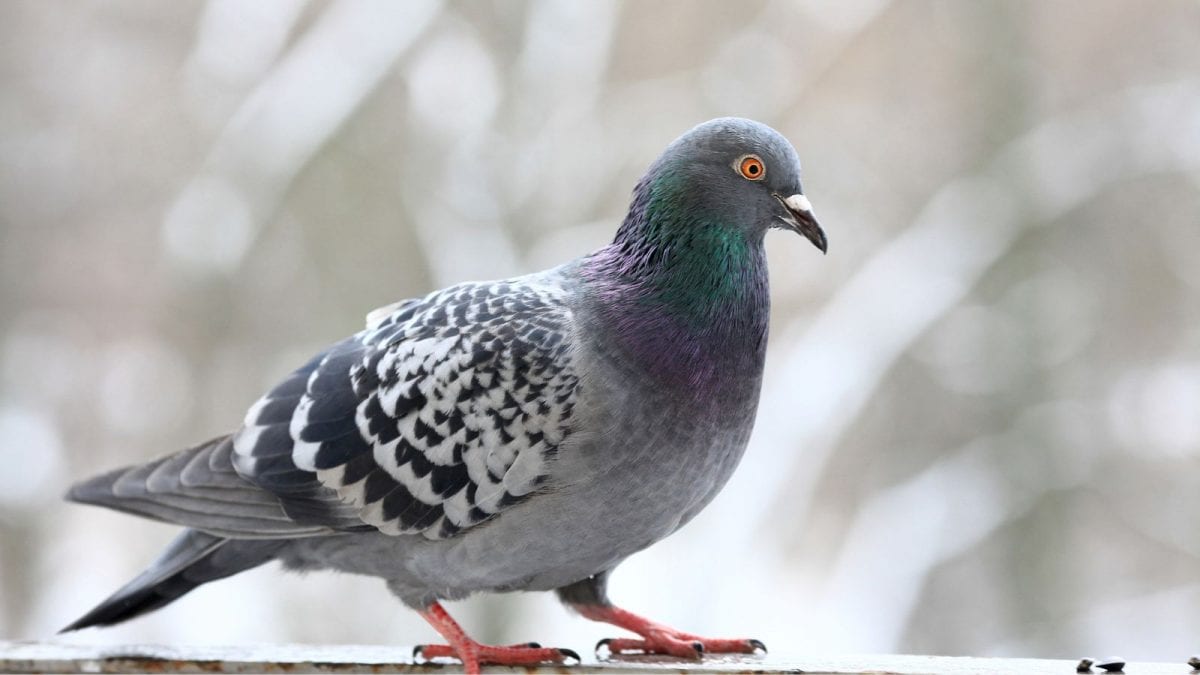Last Updated:
Pigeons may also carry mites, fleas or pathogens, which can affect indoor air quality and contribute to respiratory problems.

Feeding pigeons may seem harmless, but in urban areas, it encourages them to return frequently and attracts additional birds. (Representative Image)
Pigeons are a familiar sight in urban areas, often adding movement and life to city landscapes. While many people enjoy watching birds, pigeons can create challenges when they settle on balconies, window ledges or air conditioning units. Although pigeons may appear harmless, allowing them to roost on your balcony can lead to several issues. Their droppings are acidic and can corrode building materials, including railings, tiles and paint. Nesting debris and feathers create extra cleaning work and can block gutters or drainage systems. Pigeons may also carry mites, fleas or pathogens, which can affect indoor air quality and contribute to respiratory problems. By preventing pigeons from settling, you can protect your property and maintain a cleaner, healthier environment.
Instead of resorting to harmful methods, there are several humane and effective strategies to keep pigeons off your balcony while protecting both your home and the birds.
Use Balcony Netting to Block Nesting Spots
Pigeons tend to favour sheltered areas such as the undersides of air conditioning units, balcony corners and window ledges. Installing nylon or plastic netting over these spaces creates a physical barrier that prevents birds from making nests. For best results, professional installation is recommended to ensure the netting is tight and secure, avoiding any risk of birds getting trapped. Netting is particularly effective in high-rise apartments, where pigeons prefer quiet, undisturbed perches.
Install Bird Spikes for Safe Deterrence
Bird spikes may sound intimidating, but they do not harm pigeons. These spikes make it uncomfortable for birds to land on balcony ledges, parapets or window grills, encouraging them to move elsewhere. Bird spikes come in stainless steel or transparent plastic, allowing homeowners to maintain the aesthetic appeal of their balconies. Easy to install and low-maintenance, spikes provide a reliable, long-term solution for keeping pigeons away without causing any injury.
Maintain Clean and Dry Surfaces
Pigeons are drawn to areas that offer food, water or shelter. Leftover crumbs, standing water from air conditioners or damp surfaces can make your balcony highly attractive. Regularly wiping down tiles, railings and window sills, repairing leaks and ensuring no water accumulates in corners can significantly reduce this appeal. For an added natural deterrent, placing small bowls of white vinegar in discreet spots can repel pigeons. The scent is unpleasant to birds but completely safe for humans and pets, helping maintain hygiene and preventing nesting.
Use Reflective and Moving Objects
Pigeons instinctively avoid areas with unpredictable movement or reflective surfaces. Hanging shiny objects like old CDs, metallic tape or lightweight wind chimes can create visual deterrents that make the balcony less appealing. Purpose-built reflective discs or spinning ornaments also work effectively, offering both decoration and protection. The movement and light reflections make pigeons cautious, encouraging them to seek alternative perching areas.
Time Your Deterrent Measures with the Nesting Cycle
Pigeons breed throughout the year, but their peak nesting season usually occurs during spring and the early monsoon. Installing preventive measures such as netting, spikes or reflective objects before the nesting period begins ensures birds are redirected safely. Avoid disturbing nests with eggs or chicks, as this can raise ethical concerns. Early intervention allows pigeons to naturally find alternative roosting locations without harm, preserving both the birds’ safety and your balcony’s cleanliness.
Apply Natural Pigeon Repellents
Certain strong scents, such as clove oil, peppermint or chili extract, can deter pigeons effectively. Diluting essential oils with water and spraying them on balcony surfaces, railings or grills every few days can discourage birds from landing. These natural repellents are safe for children, pets and plants, while also leaving a subtle, pleasant fragrance. Adjusting the concentration and frequency of application helps identify the most effective approach for your specific balcony.
Avoid Feeding Pigeons Around Your Home
Feeding pigeons may seem harmless, but in urban areas, it encourages them to return frequently and attracts additional birds. Grains, bread crumbs or leftover food signals a consistent food source, increasing droppings and promoting overpopulation. Feeding also raises the risk of spreading parasites and diseases. Limiting access to food helps pigeons seek sustenance elsewhere while maintaining a healthy, balanced urban ecosystem.
About the Author

Nishad Thaivalappil is a Lifestyle and Entertainment Journalist with almost a decade-long odyssey in the realms of movies, music, culture, food, and travel. He leads the Lifestyle desk at News18.com. Besides ha…Read More
Nishad Thaivalappil is a Lifestyle and Entertainment Journalist with almost a decade-long odyssey in the realms of movies, music, culture, food, and travel. He leads the Lifestyle desk at News18.com. Besides ha… Read More
September 14, 2025, 13:07 IST









